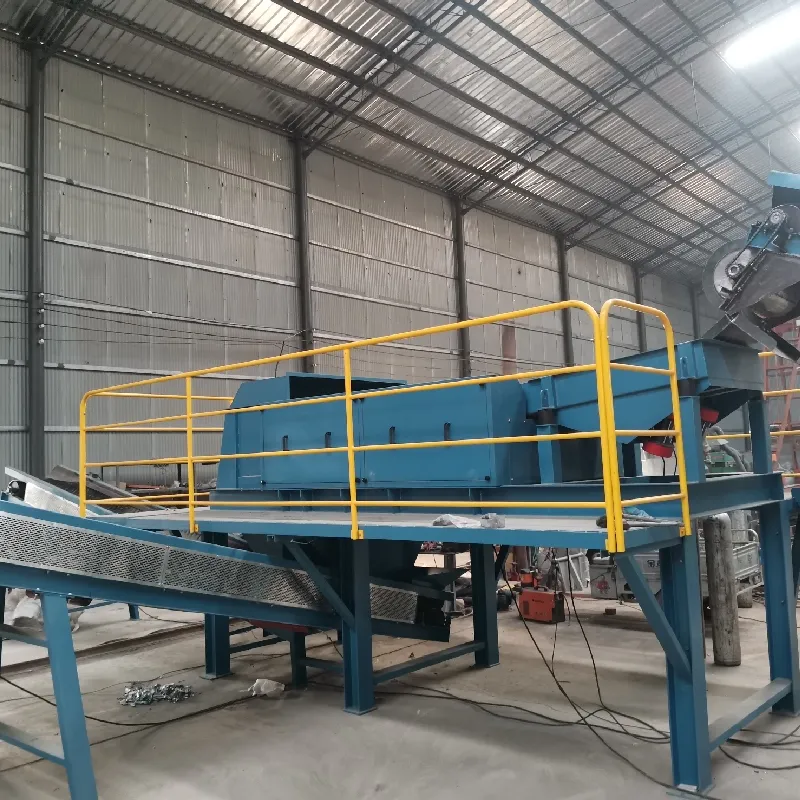

Dec . 01, 2024 14:14 Back to list
The Importance of Electronic Recycling Bins
In today's technology-driven world, the rapid pace of electronic innovation has led to an increasing amount of electronic waste, also known as e-waste. This includes discarded items such as old computers, smartphones, televisions, and various gadgets that are no longer in use. With the environmental impact of e-waste becoming more evident, the need for effective recycling solutions has never been more crucial. One of these solutions is the establishment of electronic recycling bins, which serve as a convenient and effective means for consumers to dispose of their electronic devices responsibly.
E-waste is particularly problematic due to the hazardous materials found in many electronic products. Items such as batteries, circuit boards, and certain plastics can contain toxic substances like lead, cadmium, and mercury. When these devices are thrown away in regular trash bins, they can end up in landfills where they pose significant risks to both the environment and public health. Toxic chemicals can leach into the soil and groundwater, leading to soil contamination and posing dangers to plants, animals, and human health.
By placing electronic recycling bins in accessible locations, communities can encourage responsible disposal practices among residents. These bins are specifically designed to collect unwanted electronics safely, preventing them from contributing to pollution and environmental degradation. Many municipalities, schools, and businesses are now adopting electronic recycling programs and providing designated bins to facilitate the recycling process, making it easier for individuals to participate in sustainable practices.

Recycling electronics through these dedicated bins not only minimizes environmental impact but also promotes the recovery of valuable materials. Electronic devices are often composed of precious metals such as gold, silver, and palladium, as well as other recyclable materials like plastics and glass. When these items are recycled, the materials can be extracted and repurposed into new products, reducing the need for mining and producing new materials. This not only conserves natural resources but also decreases energy consumption and greenhouse gas emissions associated with manufacturing processes.
Moreover, the proper disposal of e-waste can foster economic opportunities. By creating a circular economy where materials are continually reused and recycled, jobs are generated in the fields of e-waste collection, processing, and recycling. Communities can benefit economically while simultaneously addressing the environmental challenges posed by electronic waste.
To increase awareness and participation in electronic recycling initiatives, it is essential to educate the public about the importance of proper e-waste disposal and the benefits of using electronic recycling bins. Educational campaigns can target schools, local businesses, and neighborhoods, informing people about the hazards of e-waste and the convenient options available for recycling. Workshops, community clean-up events, and partnerships with local government and non-profit organizations can further strengthen these efforts and create a culture of responsibility towards e-waste management.
In conclusion, electronic recycling bins are a vital component in the battle against e-waste pollution. By providing designated spaces for the safe disposal of electronic devices, these bins help prevent environmental damage while allowing valuable materials to be recovered and reused. It is crucial for individuals, communities, and organizations to recognize the importance of responsibly managing electronic waste. Together, by utilizing electronic recycling bins and supporting recycling initiatives, we can contribute to a sustainable future and protect our planet for generations to come. Embracing a culture of recycling is not just a personal responsibility; it is a collective action towards a healthier world.
Latest news
The Future of Metal Recycling: Revolutionizing Waste Management
NewsMay.14,2025
Optimizing Waste with Recycling Lines
NewsMay.14,2025
Municipal Solid Waste Sorting Line: Revolutionizing Waste Management
NewsMay.14,2025
Metal Shredders: Essential Tools for Efficient Recycling
NewsMay.14,2025
Maximize Your Profits with a Copper Wire Granulator
NewsMay.14,2025
Home Metal Shredder: A Smart Choice for Your Home Recycling Needs
NewsMay.14,2025